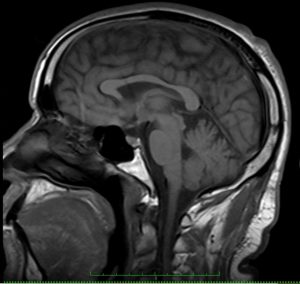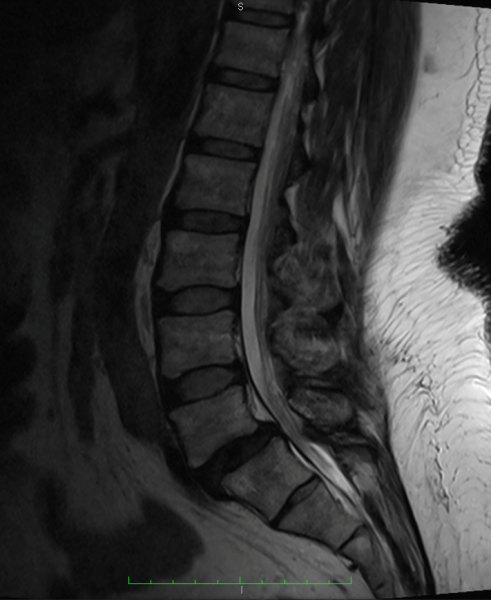What is an MRI?
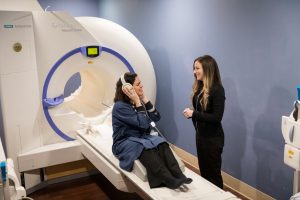 MRI uses a strong magnetic field and radio waves to create detailed images of the organs and tissues within the body.
MRI uses a strong magnetic field and radio waves to create detailed images of the organs and tissues within the body.
MRI scanning is a non-invasive and painless procedure.
The scanner itself typically resembles a large tube with a table in the middle, allowing the patient to slide in.
The strong magnetic field created by the MRI scanner causes the atoms in your body to align in the same direction. Radio waves are then sent from the MRI machine and move these atoms out of the original position. As the radio waves are turned off, the atoms return to their original position and send back radio signals. These signals are received by a computer and converted into an image of the part of the body being examined. This image appears on a viewing monitor.
MRI may be used instead of computed tomography CT (CAT) Scan when organs or soft tissue are being studied. MRI is better at telling the difference between types of soft tissues and between normal and abnormal soft tissues.
Uses of an MRI
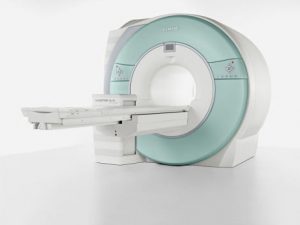 abnormalities of the brain and spinal cord
abnormalities of the brain and spinal cord- tumors, cysts, and other abnormalities in various parts of the body
- breast cancer screening for women who face a high risk of breast cancer
- injuries or abnormalities of the joints, such as the back and knee
- certain types of heart problems
- diseases of the liver and other abdominal organs
- the evaluation of pelvic pain in women, with causes including fibroids and endometriosis.
- suspected uterine abnormalities in women undergoing evaluation for infertility.
This list is by no means exhaustive. The use of MRI technology is always expanding in scope and use.
Are there any risks to having an MRI?
An MRI scan is a painless radiology technique that has the advantage of avoiding x-ray radiation exposure. There are no known side effects of an MRI scan.
Preparing for your MRI
- There is very little preparation required, if any, before an MRI scan except for abdominal exams, you may be asked to be without anything to eat for up to 6 hours prior to your exam.
- It is preferable to wear loose comfortable clothing, free of zippers and belts, as you will be asked to remove anything that is metallic.
- You may be unable to have an MRI if you have any metal inside your body, such as bullets, shrapnel, or other metallic foreign bodies. This can also include medical devices, such as cochlear implants, aneurysm clips, insulin pumps and pacemakers, make sure the office is aware prior to scheduling if you have any medical device in your body. If there is a chance of pregnancy or you have ever worked with metal (for example, as a metal grinder or welder), please let our staff know.
- Individuals who are anxious or nervous about enclosed spaces should tell their doctor. Often, they can be given medication prior to the MRI to help make the procedure more comfortable.
What happens during an MRI?
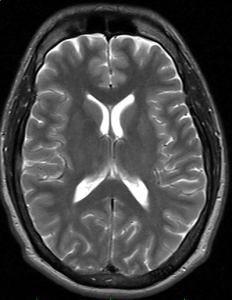 Depending upon the exam requested by your Physician, an injection of intravenous (IV) contrast liquid might be administered to improve the visibility of a particular tissue relevant to the scan.
Depending upon the exam requested by your Physician, an injection of intravenous (IV) contrast liquid might be administered to improve the visibility of a particular tissue relevant to the scan.- The Technologist will then talk to you through the MRI scanning process and answer any questions you may have about the procedure.
- The Technologist will be in another room where the scanner controls are located. However, you will be in constant sight of the technologist through a window. Speakers inside the scanner will enable the technologist to communicate with and hear you. You will have a communication ball so that you can let the technologist know if you have any problems during the procedure. The technologist will be watching you at all times and will be in constant communication.
- Earplugs or headphones will be provided to block out the loud noises of the scanner. The latter is popular as listening to music to calm any anxiety during the procedure.
- It will be important for you to remain very still during the examination, as any movement could cause distortion and affect the quality of the scan.
For your safety you will be asked to remove and leave behind personal belongs that pose a safety risk during your exam.
- Purse, wallet, money clip, credit cards, cards with magnetic strips
- Electronic devices such as beepers, cell phones, smartphones and tablets
- Metallic jewelry and watches
- Pens, paper clips, keys, coins
- Hair barrettes, hairpins, hair clips and some hair ointments
- Shoes, belt buckles, safety pins
- Any article of clothing that has metallic fibers or threads, metallic zippers, buttons, snaps, hooks, or underwire
You will be provided a locker to store any personal items during your exam however it is highly advisable that you leave your valuable behind as we cannot be responsible or liable for any lost or broken personal belongings.
Objects that may interfere with image quality if close to the area being scanned include:
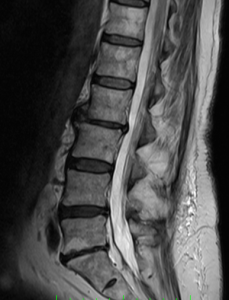 Metallic spinal rod
Metallic spinal rod- Plates, pins, screws, or metal mesh used to repair a bone or joint
- Joint replacement or prosthesis
- Metallic jewelry including those used for body piercing or body modification
- Some tattoos or tattooed eyeliner (these alter MR images, and there is a chance of skin irritation or swelling; black and blue pigments are the most troublesome)
- Makeup (such as eye shadow and eyeliner), nail polish or other cosmetic that contains metal
- Dental fillings or braces (while usually unaffected by the magnetic field, these may distort images of the facial area or brain; the same is true for orthodontic braces and retainers
You will need to please discuss with your Technologist if you have anything listed or of concern.
While the MRI procedure itself causes no pain, having to lie still for the length of the procedure might cause some discomfort or pain, particularly if you had a recent injury or invasive procedure, such as surgery. The technologist will use all possible comfort measures and complete the procedure as quickly as possible.
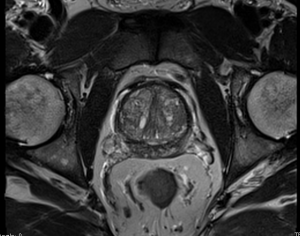 What happens after an MRI procedure?
What happens after an MRI procedure?
- You may be asked to sit on the side of the bed before being asking to stand and change back into your clothes and gather your belongings.
- There typically aren’t any side effects from the MRI contrast if you received it during your exam. If you should see any redness around the area of injection, please call the location in which you had your exam. Otherwise, no special type of care is required after an MRI scan. You may resume your usual diet and activities unless your doctor advises you differently.
- Your referring provider should receive the results via fax within 48 hours.
3 T – 3 Tesla MRI Scanner
- Provides a stronger magnet strength, can lead to higher quality images.
- Often a shorter scan time as well as a larger size of the magnet bore relieves the sense of confinement some patients associate with MRI scanners.
- The higher resolution of the 3 Tesla MRI produces more detailed images, which are beneficial when diagnosing pathological conditions involving the brain, spine, and musculoskeletal system.
A 1.5 Tesla magnet is the standard in care and, depending on the indications, your physician will determine what is best for you. Both offer optimal diagnostic imaging. Various health conditions and surgical procedures could prevent the use of a 3T in some cases.
OPEN MRI Scan
An open MRI scanner is open from the front, back, and most of the sides providing more room for larger and claustrophobic patients. While this is an ideal option for some patients, it may not be ideal for all depending on indications. In those cases, if you are claustrophobic, talk to your referring provider about pre-medication.
